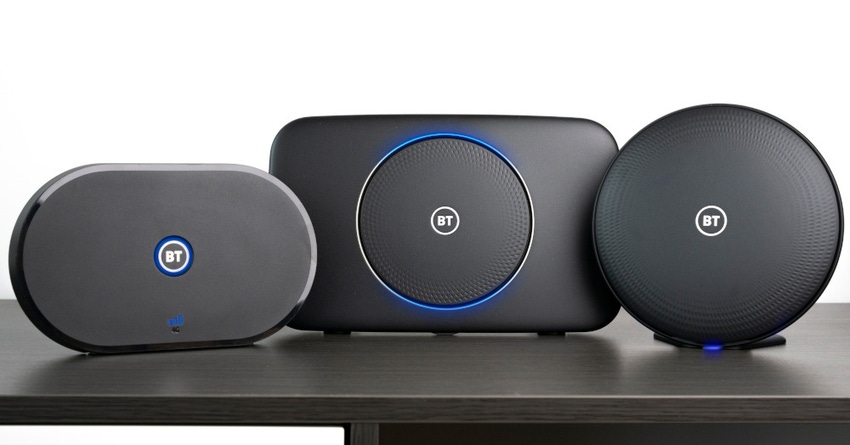BT polishes its Halo in latest convergence push
BT has launched the latest iteration of its home broadband and WiFi product, BT Halo 3+, as it focuses its efforts to get ahead of the game in convergence in the UK.
February 3, 2021

BT has launched the latest iteration of its home broadband and WiFi product, BT Halo 3+, as it focuses its efforts to get ahead of the game in convergence in the UK.
The telco first mentioned Halo towards the back end of 2019 and has already moved to the third iteration of the product…with an added plus for those who choose to take it. Essentially, Halo 3+ is a fibre broadband and home WiFi service that uses the EE mobile network for back-up if needed, giving customers reliable home broadband.
Indeed, mobile back-up has given the telco the confidence to brag about “the UK’s only unbreakable WiFi connection for the home,” which is a bold – and possibly foolhardy – claim by anyone’s standards.
However, Halo 3+ customers will be able to book a home visit from BT’s team of Home Tech Experts should they experience any issues, and the team will make an annual visit as standard to check each customer’s WiFi, all apparently at no extra cost. “Simply give customer support a call and a Home Tech Expert will be round whenever needed – whether that’s to set up a new service or to fix a problem,” BT said. Given the cost of that level of customer support, BT must be pretty confident in its service.
That said, it doesn’t come cheap. BT said customers can sign up for Halo 3+ alongside its broadband bundles which start at £65.99 per month. As yet, BT has not added Halo 3+ information to the BT Halo section on its website, so we haven’t got full visibility on what costs consumers might be looking at. That information should come soon though, with the product due to launch on Friday.
Halo 3+ is based on BT’s Hybrid Connect device, which connects to the Smart Hub 2 to provide access to EE’s mobile network if needed, and to BT WiFi, BT is also pitching it as an ideal solution for those moving home for use while they wait for the fixed broadband line to be activated. It has pledged to send out the device on the day it is ordered and deliver within 24 hours.
For customers that don’t want to go the whole hog, there is a standard version of Halo 3 (without the +) that doesn’t come with Hybrid Connect, but customers do receive a BT Mini Hub, in case of broadband issues or moving home, and unlimited mobile data on BT mobile plans. So essentially, its “unbreakable” connectivity by stacking up the devices, rather than by actual convergence.
But make no mistake, this announcement is all about convergence, both in terms of simple customer stickiness – giving additional data to customers with both fixed broadband and mobile accounts, for example – or true convergence through the Hybrid Connect product. You could argue that BT is lagging behind in this respect, given that it bought EE five years ago, but it’s probably fair to say that the market in general is not yet crying out for converged offerings.
“Making users aware of the vast merits of Halo still represents a monumental challenge,” noted PP Foresight analyst Paolo Pescatore on Wednesday.
“It feels like BT is slowly moving towards one brand which will reduce costs, avoid consumer confusion and cannibalization of revenue,” he added. That’s a fair point; a single brand could do more for furthering convergence in the UK than even products like Halo, given that the latter is based on a fixed connection from one brand and mobile connectivity from another; that fact alone probably makes the product more difficult for consumers to understand.
Halo in general is a great development from BT, but it is putting yet another brand in front of consumers. Simplify it and they will come…if they can get over the sticker price.
Get the latest news straight to your inbox. Register for the newsletter now
About the Author(s)
You May Also Like








.png?width=300&auto=webp&quality=80&disable=upscale)


_1.jpg?width=300&auto=webp&quality=80&disable=upscale)


.png?width=800&auto=webp&quality=80&disable=upscale)